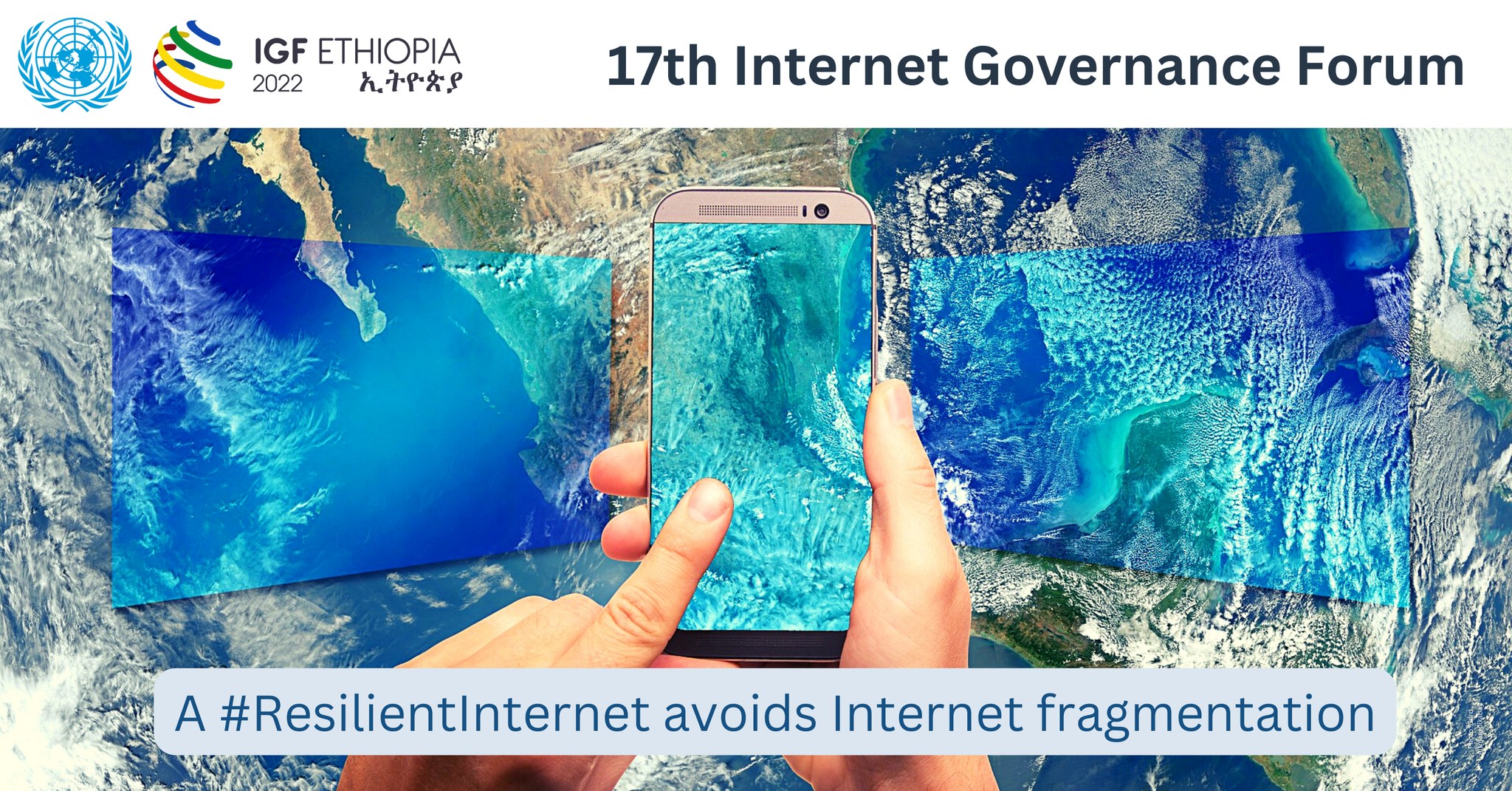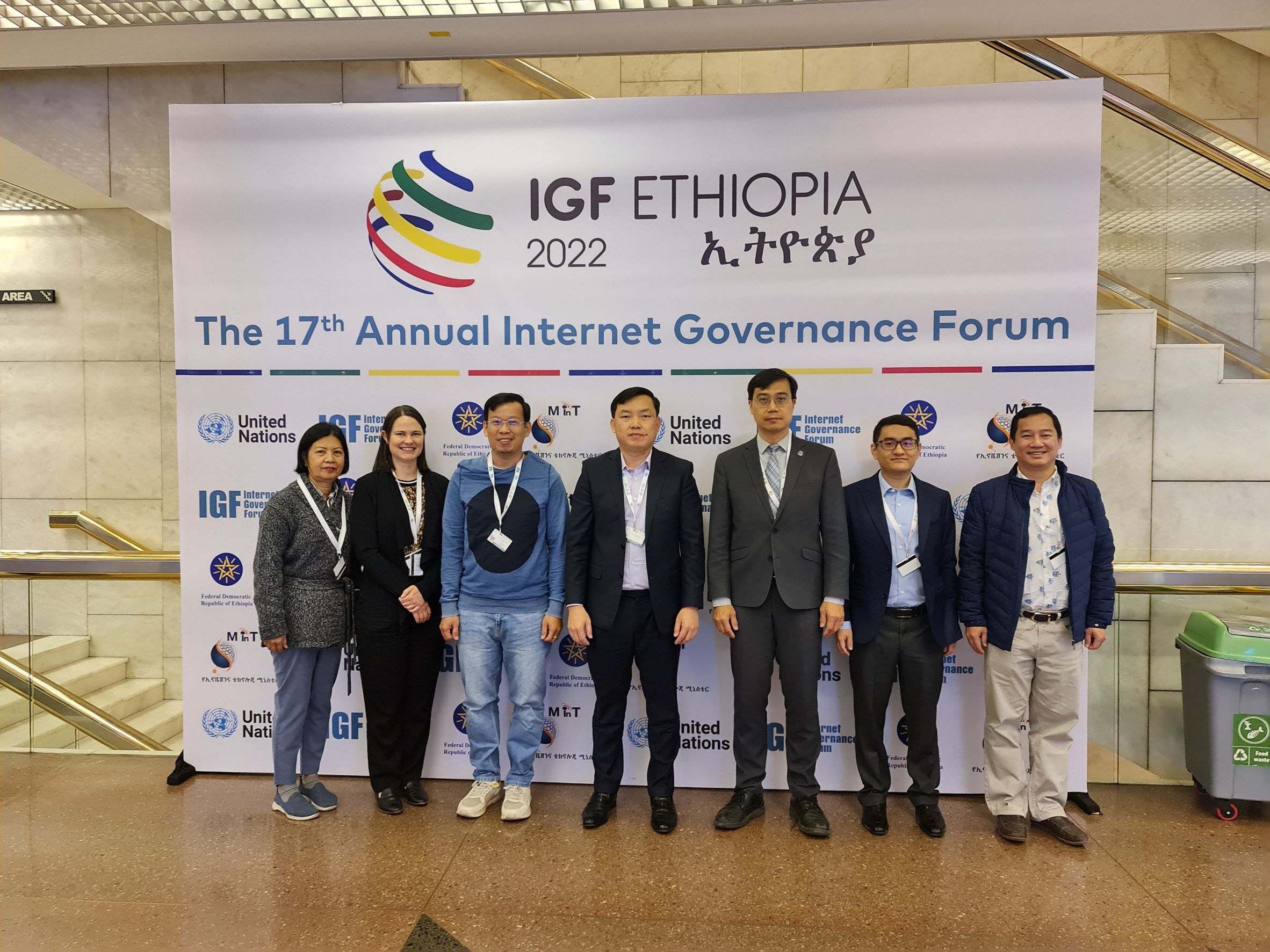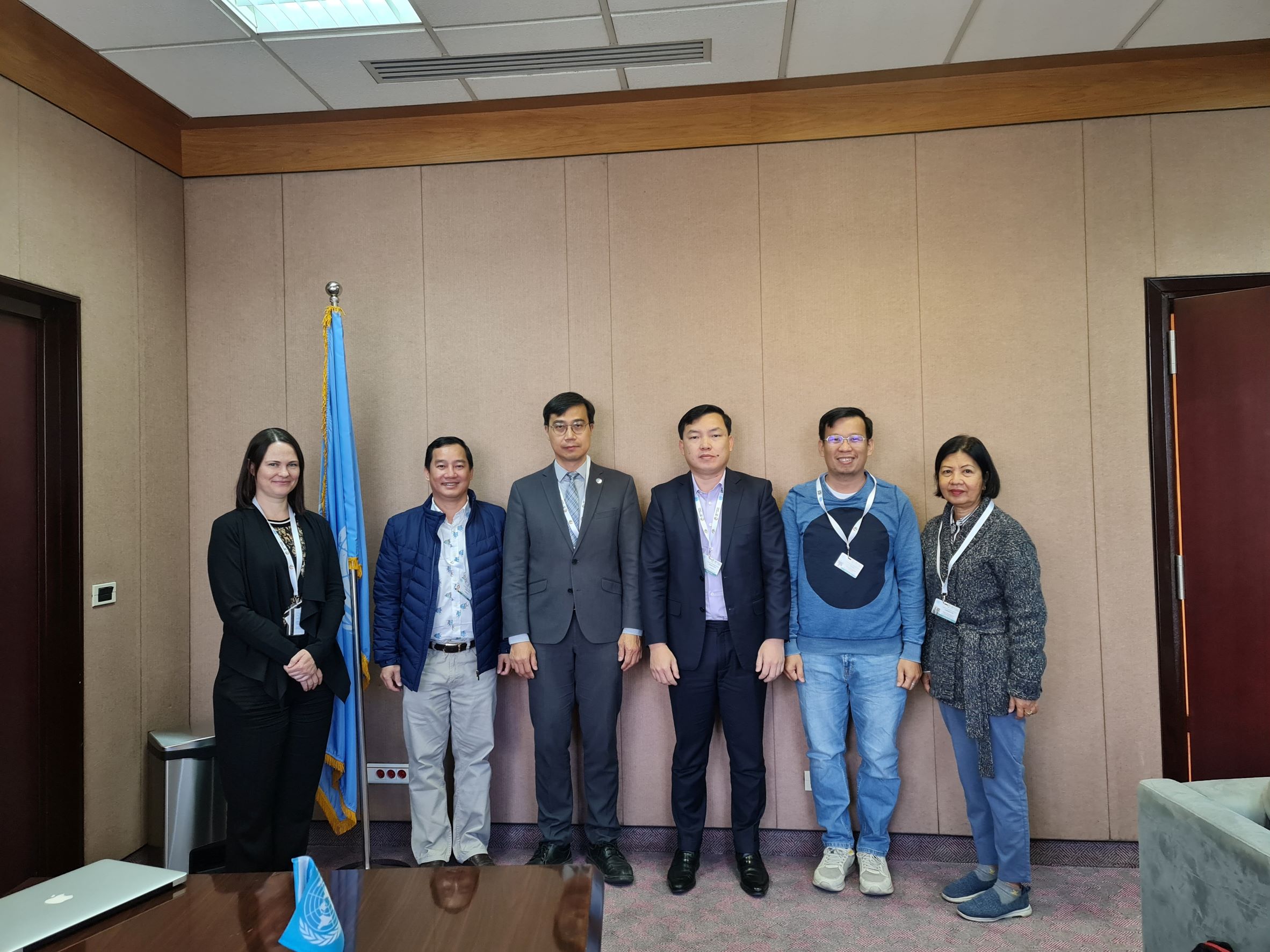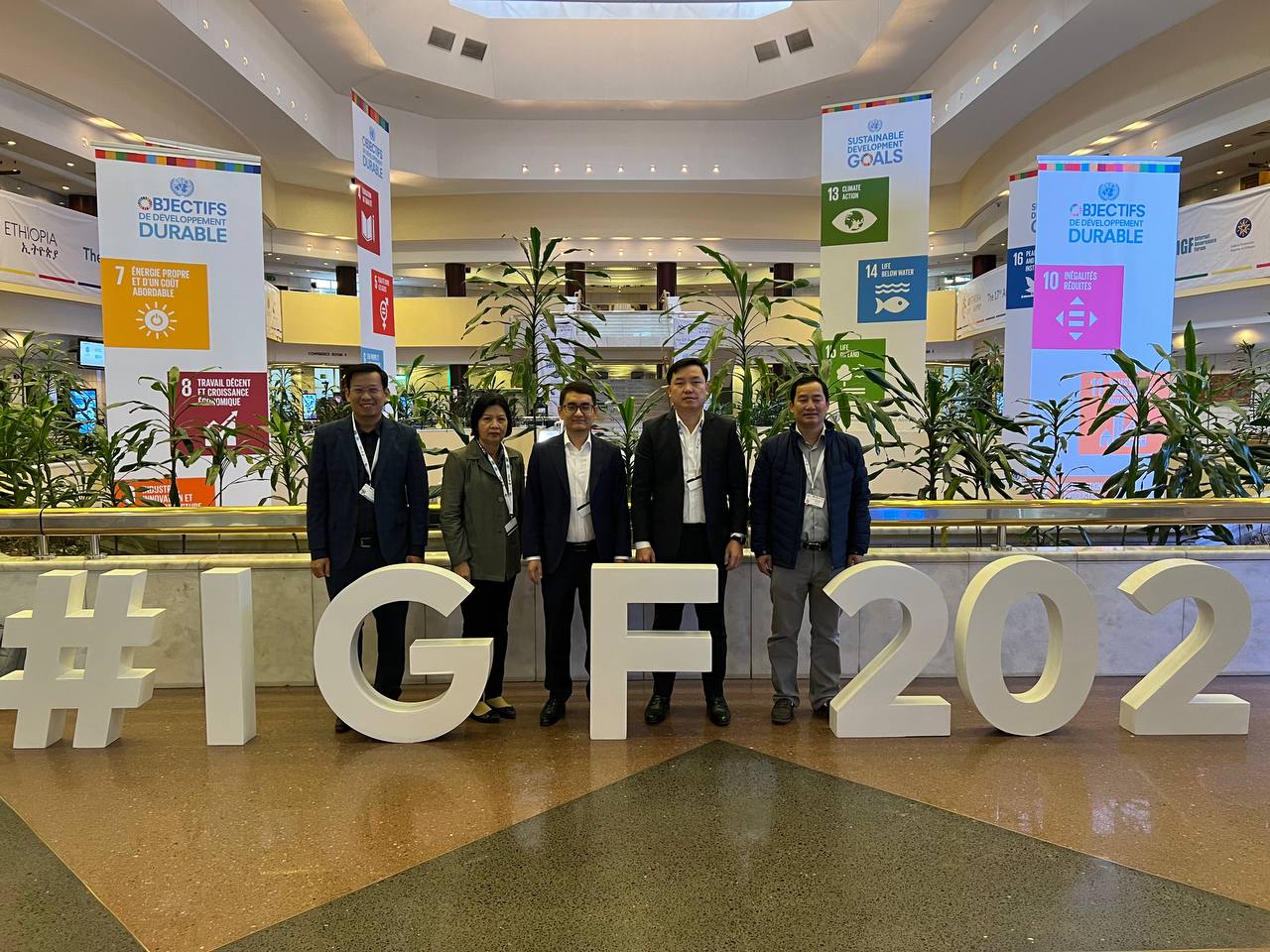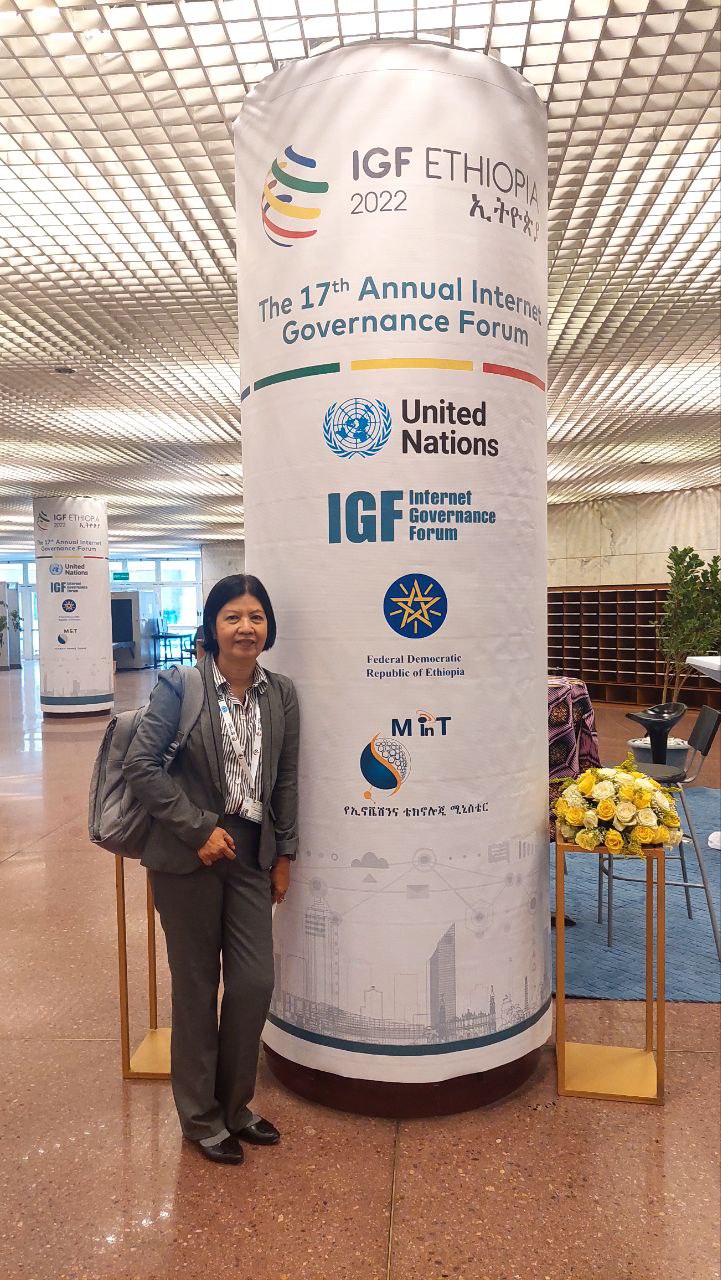The 17th Internet Governance Forum (IGF)
The 17th Internet Governance Forum (IGF) was hosted by the Government of Ethiopia with the support of UN ECA and UN DESA and took place from 28 November to 2 December 2022 in Addis Ababa, Ethiopia, under the overarching theme Resilient Internet for a Shared Sustainable and Common Future. Around 200 sessions were organized to explore almost every aspect of the Internet, with participants coming from diverse professional backgrounds and world regions.
The Forum was built around the following themes related to Global Digital Compact:
- connecting all people and safeguarding human rights
- avoiding Internet fragmentation
- governing data and protecting privacy
- enabling safety, security and accountability and addressing advanced technologies, including artificial intelligence (AI).
The Compact aimed at setting out ways in which all stakeholders can shape the forum’s digital future for the common good.
Some of the most insightful topics that ODC representatives discussed at the event were the following:
- The principles of the internet governance. Internet governance arrangements must ensure the protection of fundamental rights and freedoms, in accordance with international human rights law. They should be upheld in the design of new technologies, services and applications. Stakeholders should be aware of developments leading to the enhancement of, as well as threats to, fundamental rights and freedoms, and fully participate in efforts aimed at recognizing newly-emerging rights. In applying internet governance, it should ensure an open, transparent and accountable manner and the participation of governments, the private sector, civil society and the technical community, taking into account their specific roles and responsibilities. The development of Internet-related public policies and internet governance arrangements should enable full and equal participation of all stakeholders.
- The obstacles that keep people from using internet. Internet price is inaccessible for the majority of people who encounter socially or economically difficulties. In this aspect, the telecommunications industry and the state have an important role to play. The State should facilitate or develop strategic investments, subsidize access for underserved communities to implement effective and transparent regulations, such as open access to subsidize infrastructure. It is important to set lower prices to attract high demand by (1) a clear competition and well-rounded policies and regulations that stimulate both supply and demand; (2) facilitating resource sharing across network operators and other infrastructure providers and creating public-private partnerships to subsidize infrastructure projects; (3) governments play a key role in securing the benefits of infrastructure investment in non-commercially attractive areas while at the same time addressing the socio-economic barriers; and (4) National leadership is to maximize the positive impact on jobs, productivity, economic growth and innovation.
- Internet governance process principles. The internet allows billions of people to communicate with each other on the other side of the planet, used as suitable vehicles for sharing and learning information. People can explore information that other members have created and learned of distant cultures as well as obscure professional and academic disciplines. The principles of Internet governance should promote universal, equal opportunity, affordable and high-quality Internet access so it can be an effective tool for enabling human development and social inclusion. There should be no unreasonable barriers to entry for new users.
- Engaging women in Internet governance. Women have been socially and historically marginalized due to harassment and physical violence. It is crucial to recognize social harassment as a crime. Women are subjected to violence online, when issues are discussed in terms of the intersection of gender issues with other forms of social disadvantage, discrimination, and oppression, for instance race, national status, age, or normativity.
At the event, ODC representatives discussed with the UN Department of Economic and Social Affairs team the possibility of hosting a localized Cambodia IGF2023. This national event would engage all stakeholders to participate in the discussion and share challenges and best practices to overcome and mitigate the difficulties of the users as a whole.
